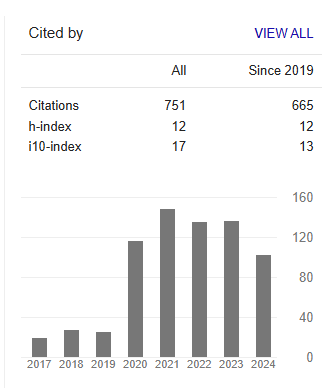Use of the MLST Technique to Describe the Allelic Profile of Treponema Pallidum in CSF Samples: A Systematic Review
Abstract
Isabelle de Carvalho Rangel, Beatriz Pereira de Azevedo, Marcia Quinhones Pires Lopes, Mariana Munhoz Rodrigues, Ricardo de Souza Carvalho, Fernando Raphael de Almeida Ferry
Syphilis is a sexually transmitted infection that has recently become a serious public health problem in Brazil. At the same time, the World Health Organization estimates that among 56 million individuals are infected with syphilis. Multilocus Sequence Typing consists of a high resolution molecular typing technique that is based on the amplification and sequencing of fragments of conserved genes called housekeeping (loci). The technique was recently developed and used for the study of syphilis, but there are few studies related to neurosyphilis (NS), a nosological entity with greater severity and morbidity. For Tp typing, three genes are identified: TP0136, TP0548 and TP0705. This systematic review aimed to analyze original studies that addressed the MLST technique, describing the allelic profile and discrimination of Tp clades present in each population and its relationship with clinical-epidemiological aspects, especially in neurosyphilis, through a bibliographic survey in databases with the following DECS: MLST, Multilocus Sequence Typing and Treponema pallidum. As a result, 56 articles were found, of which only 7 were selected for full reading. After reading the selected articles, only two reported CSF analysis. It is concluded that the determination of the allelic profile through MLST is a high-resolution genotyping tool that allows the distinction of subspecies and species of Treponema pallidum, and can be used for differentiation of strains within each phylogenetic tree of these microorganisms. The mutation most associated with macrolide resistance is A2058G, which is commonly found in Clade SS14-like samples, in addition, the most studied gene to assess macrolide resistance is 23s rRNA. The MLST technique presents a great perspective for the deepening of questions related to the study of different strains of Tp, especially the characterization of neurotropic strains that cause NS, antibiotic resistance, phylogeny and geographic distribution.



